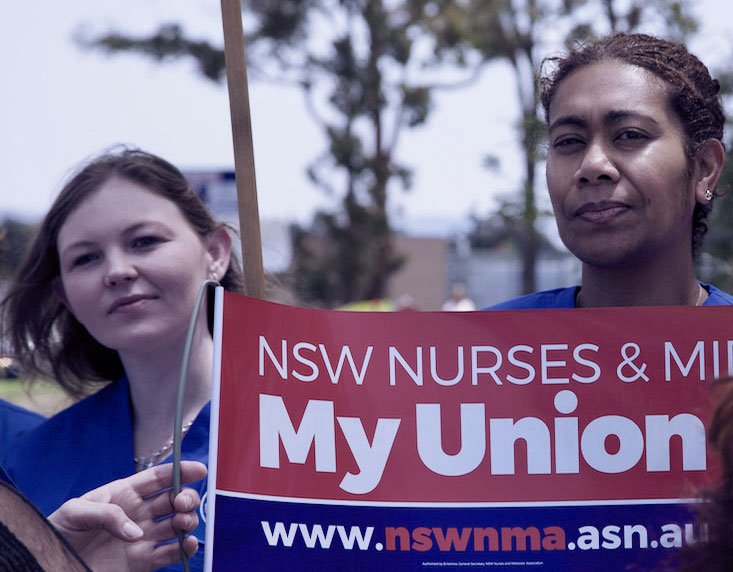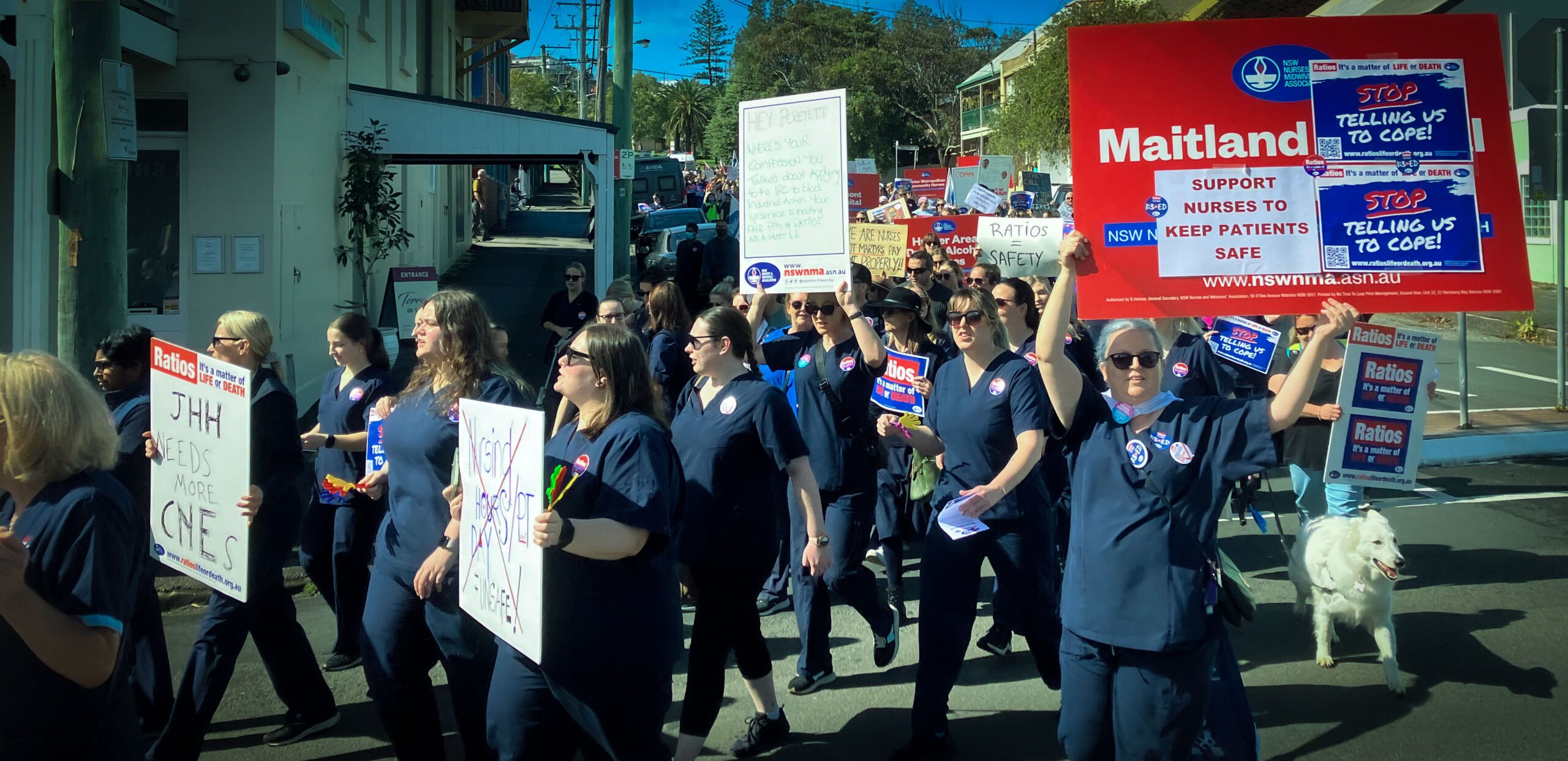 “Sorry, Jane rang in sick, and we can’t find anyone to replace her.” The words of the night duty RN greeted me. I was not surprised. Too often lately we work short – there is just no-one to fill in. The AINs groaned. I looked around seeing who was on: Anne – good, she works well, Bess – oh, she will need help, she’s only new. Chris – he’s OK, but some of the old ladies react when a man approaches them (you’d think they’d be used to it by now. ) And Diane – she fusses so much and comes to tell me so intensely about every little thing.
“Sorry, Jane rang in sick, and we can’t find anyone to replace her.” The words of the night duty RN greeted me. I was not surprised. Too often lately we work short – there is just no-one to fill in. The AINs groaned. I looked around seeing who was on: Anne – good, she works well, Bess – oh, she will need help, she’s only new. Chris – he’s OK, but some of the old ladies react when a man approaches them (you’d think they’d be used to it by now. ) And Diane – she fusses so much and comes to tell me so intensely about every little thing.
Thirty six high care residents, four AINs and me! And people complain that staff don’t answer buzzers! It can take two staff over twenty minutes to just shower and dress one resident. What do people expect? This is not some nice aged care facility like you see on television, where the residents mostly shower and dress themselves and friendly staff with time on their hands spend time talking to them and taking them for walks in the garden. This is HIGH care. All our residents either have dementia and have forgotten that they even need to shower and get dressed, or have physical limitations which mean they need full assistance. No one can shower and dress by themselves.
Thirty six residents, all of whom have to have their medications given to them. Quite a few need medications crushed and mixed with puree. Most are slow at taking tablets, taking one at a time. Then there are the blood sugar levels to check and insulin to give. The official medication round time is eight o’clock. But the round can take over two hours to complete!
By the time I have had hand-over and organise who is working with whom and in which section, I am late starting the medications. The phone rings, I answer, being too early for any clerical staff yet, “Peony Nursing Home, Sharon speaking”.
“ Can I speak to the Registered Nurse in charge, please?”
“I am the RN in charge at the moment”, I reply.
“Oh, we are coming to take my mother out for the day, and I just wanted to make sure that she would be ready and in a wheelchair by 9.30, please. Last time, she wasn’t ready on time and we were late, and make sure her clothes are nice and clean. Sometimes when I come to visit she is in dirty clothes!.
“Who is your mother?” Do they think I’m a mind reader, or that I know their voice so well I can just tell?
“Oh, sorry, Mrs Pinks.”
“I will ask the staff to have her ready.” Mrs Pinks is half blind, doesn’t like to be helped, and is always making a mess at meal time; I’m not going comment on the dirty clothes issue.
I hang up and go and find Chris, he’s looking after Mrs Pinks today. I tell him the daughter wants her ready by 9.30. He rolls his eyes, at the mention of the clean clothes. “We’ll shower her and get her partly ready before breakfast, but not put her outer clothes on until after breakfast.” I nod, that make sense, if we shower and dress her before, she’ll mess the clothes, if we leave it all until after, she won’t be ready on time.
I still haven’t started the medications! I decide I’d better check on all the residents first . Unlike some nursing homes, ours has all single rooms, each with an en-suite. It is nice for the residents, but can also be isolating for them. So I start, opening doors and poking my head in, just to make sure the resident inside is not lying on the floor with a broken hip. Or even worse – I open the door to Mrs West’s room, she is lying in bed on her side, facing away from the door. I stand there looking for a few seconds, waiting to see her chest move to show she is breathing, but it doesn’t. I walk into the room and look at her face – one look and I know she is dead. Her skin has no colour and her mouth is open and has a bluish tinge. She was over ninety, and had previous history of CVA and TIAs. I call Ann, who comes in and we turn her onto her back. There is pooling where she had been lying. No question, she’s dead, has been for some time. I don’t’ feel the need to listen for heart sounds to double check.
Inside, I’m screaming, it’s nearly half past seven by now, I have been at work less than an hour, and I still haven’t had time to start my routine medication round. I go to the office, unlock the cupboard with Mrs West’s file and look up the name and number of the next of kin. The phone rings, and a female voice answers, “hello,” I say, “it’s Sharon from Peony Nursing Home here, is John there?”
I hear her voice saying “John, it’s the nursing home, I think something’s wrong.”
John comes to the phone, “Hello John, its Sharon here from the Nursing home, it’s about your mum,” I start in a very calm and soothing voice, “I’m sorry, but, we just went in to check on her and found she had died.”
He gives a loud exhale.“Did she die in her sleep?”
“It certainly looks that way, she was lying on her side, looking very comfortable. The night duty staff checked her on their last round, some time after five o’clock, and we just found her now.
“OK, um… what happens, what do I do now?”
“Well, I will have to ring the doctor to come in to sign the death certificate. We will need to know the funeral director, it’s not here on file,” I’ve been madly looking through the file while I was on the phone. “Do you or other members of the family want to come in to say goodbye?” My voice remains very calm and sympathetic. Death is not something most people deal with every day.
“Um, yes, we will. I will ring my sisters too. Is there a time we have to be there by?
“We can turn the air conditioning in her room down to cool, and keep her for a while, just let us know when you’ll be in.”
He rings off, and I find Ann to tell her that the family is coming in. Together we go back into the room, tidy up a few things, and straighten the bed out so it looks reasonable. Lying on her back, her features relaxed, Mrs West does look almost as if she were asleep, except for the discolouration on the side of her face where she was lying. I turn the air conditioner on to cool the room, shut the door. Ann has already placed a sign on the door “See RN before entering.”
I turn to ring the doctor. We have the home numbers of some of the local GPs who come to see residents in the nursing home – but not all. This is one we have the home number for, he lives locally. “Sorry to disturb your Sunday morning doctor, but we have just found Mrs West dead in her bed.”
“Oh, we were about to go out for the day,” he pauses to think, “ I’ll be there soon.” All our residents are seen by the doctors at least every three months. Officially a death certificate has to be done by the attending doctor. We don’t have a morgue, bodies have to be collected fairly quickly. There are procedures to follow if a doctor can’t attend to sign the certificate.
By now it’s nearly eight o’clock and I have yet to start the medications! Quickly I write in Mrs West’s notes; I get the paper work ready for the doctor, and go to check the blood sugar level of our two diabetics before I give them their insulin. The breakfast trolley arrives.
Usually, when we’re short, I will try and help with the meals, giving out trays or feeding a resident or two. But today, I am just trying to get the medications done.
It takes time to give out all the trays – to make sure every resident is sitting up properly and can reach the tray; that lids are taken off and packages are opened for them. Most do not have the dexterity needed to open small sachets of coffee or jam. And we have about five residents that are full feeds. That means someone has to sit there, and feed them. A few are better off with only one thing in front of them at a time. If left a whole tray, we would find everything mixed together, and tea spilt over all.
“You’re late this morning,” says Mrs Vaughan, as I enter with her insulin and other medications. Her mind is very active, but she is extremely overweight and has multiple health problems.
“Sorry, but sometimes it can’t be helped. We have had a death this morning.” I silently congratulate myself for maintaining a very calm voice. I’m tempted to say, give me a break, I’m doing the best I can – but that would only antagonise her.
“Oh”, she says, “who died?”
“Mrs West,” I’ve told the family and this woman is going to find out sooner or later anyway. Mrs Vaughan becomes more sombre, I guess she realizes the only way out of a high care nursing home is by death, usually. We have had one go home after some rehab following a stroke, and others go to other facilities to be nearer family.
I’ve not quite finished the medication round when Mrs West’s family arrive. I go to meet them – there is about sixteen of them! Her children, grand-children and great-grandchildren. I take them to one of the dining rooms which is not yet occupied. Focusing on the son, John, I tell again how we found her on her side. His sister says, “she died in her sleep?”
“Yes, she looked very comfortable when we found her.”
“Can we see her?” John asks.
“Maybe not all at once.” I suggest and start to lead John and his sisters to her room. As we are walking I quietly explain that the room is cool, and that there is some discolouration to the face because she was lying on her side. On walking in, his sister starts to cry, and says she looks like she’s asleep – the discolouration is not as bad as it was. I stay quietly for a few moments, then say, “you can stay as long as you want to.”
Going back to the other members of the family, some of whom are crying, I approach a responsible looking male, and say “there is a servery through there, you can make yourselves tea or coffee. Use the table and chairs here, as you need. I have told John you can stay as long as you need to.”
He thanked me with a brave but grief-stricken face, and I left them.
Chris was just wheeling one of the recliner chairs with a resident to the dining room. I told him to use the other dining room for now.
I went back to the medications.
Bess came to tell me the doctor was here, when I only had two residents to go. I locked the medication trolley again, and went to meet him. He asked questions about how and when we found her, when she was last seen. He had already been to see her and spoken to John. He finished his paperwork quickly.
After finally finishing the medications, I record the BSLs on the computer notes, (they are also written on a form in the medication folder.) And check who has dressings that need doing and who needs observations taken.
Walking, I see John is in the dining room, while others are in with his mother. “I will need you to decide on the Funeral Director,” I say after asking how he is coping. After a brief discussion with other family members, they give me a name, apologizing for not having the phone number. I reassure them we have it and that I will ring them.
Deciding I have a few moments, I go to the staff room for a quick break. I have taken a few sips of tea when the phone rings: it’s Diane, saying one of the residents, Mr Barker, has a skin tear and it’s bleeding profusely. I leave the staff room immediately.
Documenting the injury, complete with incident report as to how it happened takes longer than it does to dress it. I continue with other dressings and observations.
John comes to find me, he thanks me for my support and says they are about to leave, and will all go back to his place. A very close, loving family.
The funeral people say they will be there within two hours when I ring them.
By now it’s time for the lunchtime medications. I rush through as quickly as I can do without risking mistakes. Fortunately as it is a weekend, there are family members present to assist feeding some of the residents.
I’m exhausted, have not had a proper break, and still writing reports when afternoon staff arrive to take over. After hand-over, Bess comes in and says Mrs Davis has been more confused than usual, she wants to go home to her mother. I say sorry to Cheryl, the afternoon RN, who will have to deal with that problem.
A familiar person walks down the hallway with a potted cyclamen and a box of chocolates. Giving me a big smile, I finally recognise who it is. “Sharon,” he says, “I rang yesterday to make sure you’d be on today. I came up because it’s mum’s birthday and I wanted to visit her grave. And to see you and thank you so much for the wonderful care you gave her, especially those last few weeks she was here, I will never forget you.” We talk, it’s over two years since his mother died. He doesn’t know any of the other staff he sees.
“Sorry to keep you, I must let you get back to work,” he says and gives me a big hug, and the presents.
As I leave work for the day, I reflect on the impact my care of his mother must have made, for him to bring gifts two years after she had died. Watching the woman he had known to be intelligent and vital slowly fade away was extremely painful. I worked most weekends, which is when he’d visit. We’d always talk about her, what was happening to her at the time, and what she’d been like in the past. We did that for nearly three years before she died.








